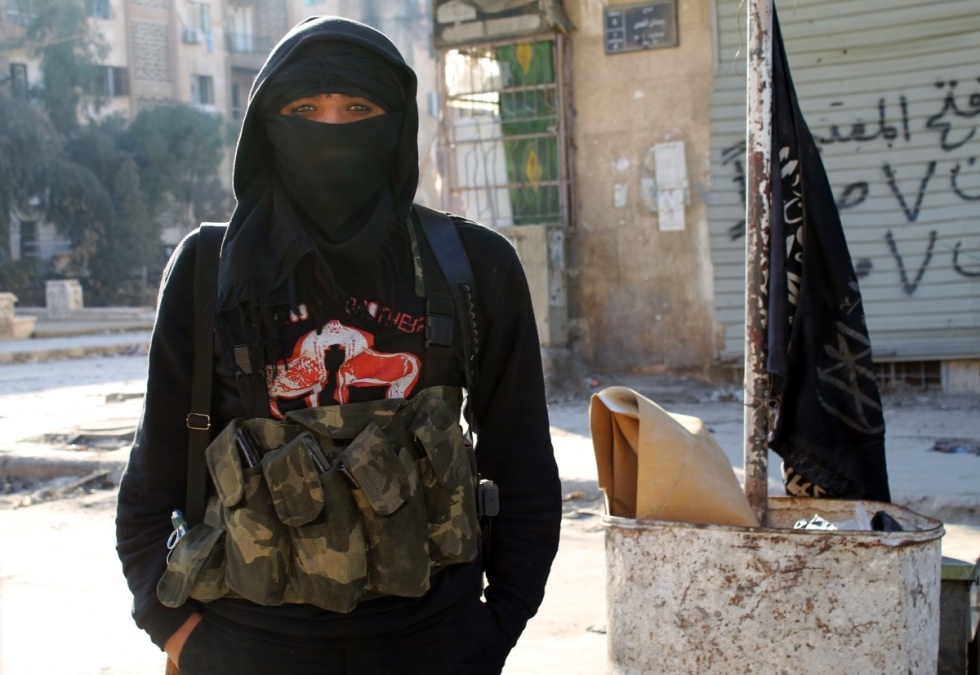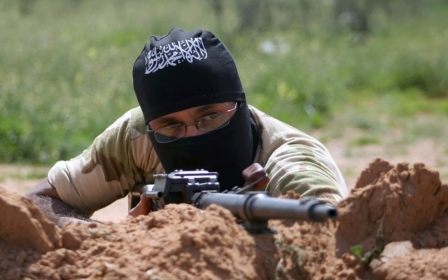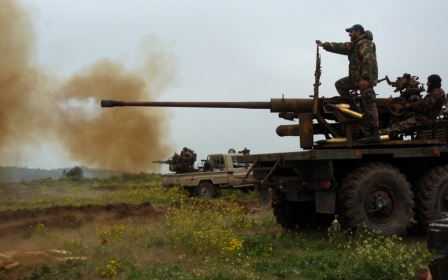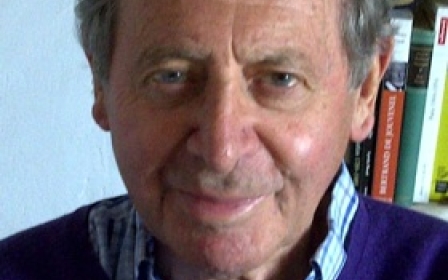Captured rebel 'confesses' international backers behind key defeat

A rebel commander has seemingly confessed that foreign intelligence services were behind a key military defeat for anti-regime forces in southern Syria last year, in a video posted to social media sites earlier this week.
Ahmed Nehmeh made the confession in a video posted to YouTube three days after being captured by Jabhat al-Nusra in Deraa. He is a former colonel in the Syrian air force who defected to lead a rebel offensive which ultimately ended in disaster after rebel forces lost control of the key town of Khirbet Ghazaleh last May. In the video Nehmeh says that the controverial defeat was orchestrated by the rebels’ international supporters.
Nehmeh was seized on his way back from Jordan by members of al-Nusra in an ambush on Saturday and will now be put on trial in a rebel court accused of treason. He appeared bruised in the video confession and it is not possible to verify whether he was tortured although asource close to al-Nusra said the confession was not coerced.
“Nehmeh confessed to everything without being tortured. For the first two days he was well treated, then he was beaten but it was only a light torture,” the source told The National, a UAE-based newspaper.
The battle for Khirbet Ghazaleh, a town on the strategically vital Damascus-Deraa motorway, lasted for 60 days at which point the rebels seemed to have gained the upper hand. Nehmeh, however, then took charge of the offensive after which point things quickly started to go wrong.
New MEE newsletter: Jerusalem Dispatch
Sign up to get the latest insights and analysis on Israel-Palestine, alongside Turkey Unpacked and other MEE newsletters
Nehmeh, who has acted as an intermediary between Arab and Western intelligence agencies, claims donor countries – referring to Western and Gulf states who have heavily invested in supporting the rebels – asked him to ensure the rebels did not secure control of the town.
The reason behind the decision, according to Nehmeh, was that donor countries wanted to quell the influence of al-Nusra, which was playing an important role in the Khirbet Ghazaleh battle. Instead of seeing al-Nusra gain power in the south, international supporters instructed Nehmeh to contrive a victory for regime forces, he claimed in the video.
“We have moved from one failure to another and this is the fault of the donor countries who are manipulating us and they do not want the Islamic project to succeed or that there be an Islamic power on the ground,” he said in the confession.
This revelation has compounded rumours among rebel groups that have circulated since the suspicious defeat, which intersified divisions among the opposition forces.
The Free Syrian Army (FSA), within which Nehmeh still retains support, has spoken of its concern about his detention and apparent mistreatment.
“We have seen on the video the evidence of violence and that is why we are asking that he face trial in a mutually agreed court and that his trial must be fair, with evidence presented,” a senior FSA source told The National.
“If he is incriminated he will be punished” the source added.
The incident has increased tensions among rebels in Deraa, with groups linked to the FSA threatening attacks against al-Nusra if Nehmeh is not transferred to their custody.
Efforts to resolve the dispute are underway, with a mediation committee involving representatives from various rebel groups as well as tribal sheikhs already holding talks.
Although al-Nusra want to punish Nehmeh themselves, there is recognition that unity among the rebels may be of greater importance.
“He’s a traitor and deserves to have his head cut off but we don’t want blood to be spilled and people will be polarised between the Islamists and the FSA,” a source close to al-Nusra told The National.
There has been an effort by the rebels to regain the upper hand on government forces in southern Syria recently. While there have been some smaller victories the overall status quo has not altered drastically.
Middle East Eye delivers independent and unrivalled coverage and analysis of the Middle East, North Africa and beyond. To learn more about republishing this content and the associated fees, please fill out this form. More about MEE can be found here.




